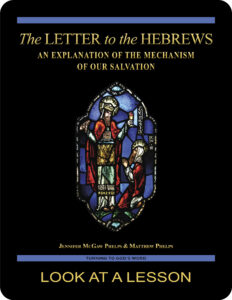salvation
 The New Testament offers many references to salvation, which is one of the central concepts of Christianity. Christians often refer to salvation as
The New Testament offers many references to salvation, which is one of the central concepts of Christianity. Christians often refer to salvation as
being “saved.” In the Gospel According to Luke 13:23 (NABRE), Jesus is asked: “Lord, will only a few people be saved?” The Greek root of the word translated as saved is sozo, which means “I keep safe” or “I preserve.”
Although the English translation initially was very close to the original concept, the Christian connotation that salvation or being saved means “possessing immortal life” has become predominant enough that any previous meaning has been lost or obscured. In the Gospel According to Luke 13:23 (NABRE) and other New Testament passages, sozo shows up in the passive voice and so refers to being safe. In its literal sense, then, being saved is being safe.
If we’re finally safe in Christ, there must be some danger that otherwise besets us. What do you think that might be? The implicit answer seems to be death that comes from sin. We see that Christian salvation, while it does amount to the common understanding of gaining immortal life, also includes the concept of being kept safe from the danger of death.
related topics: healing; hope; kill; righteousness
you also may like our study of the Letter to the Hebrews (digital only)
 Many Christians struggle to understand one of the central mysteries of our faith: how Jesus can be both human and divine at the same time. The Letter to the Hebrews: An Explanation of the Mechanism of Our Salvation, an 18-lesson Catholic Bible study with an imprimatur, offers an in-depth look at the way in which Jesus’ dual nature allows for the salvation of humanity. The Letter to the Hebrews is designed to provide information that will encourage Christians to remain faithful. Click on the book’s cover to view a sample lesson.
Many Christians struggle to understand one of the central mysteries of our faith: how Jesus can be both human and divine at the same time. The Letter to the Hebrews: An Explanation of the Mechanism of Our Salvation, an 18-lesson Catholic Bible study with an imprimatur, offers an in-depth look at the way in which Jesus’ dual nature allows for the salvation of humanity. The Letter to the Hebrews is designed to provide information that will encourage Christians to remain faithful. Click on the book’s cover to view a sample lesson.
 Click on the picture of the statue of Moses with horns (above) to learn more about Lost in Translation. A new entry is archived each Monday. Contact us to receive Lost in Translation by email every week. You may use any of the contact links on our website to ask Matthew a question.
Click on the picture of the statue of Moses with horns (above) to learn more about Lost in Translation. A new entry is archived each Monday. Contact us to receive Lost in Translation by email every week. You may use any of the contact links on our website to ask Matthew a question.

Leave a Reply
You must be logged in to post a comment.